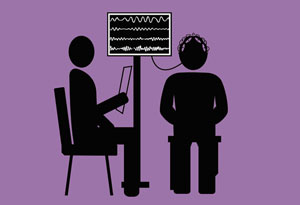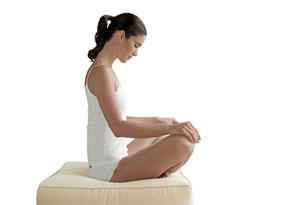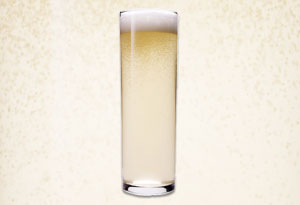
Photo: Artboximages/Getty Images
74 percent of medical students say Western medicine would benefit by integrating more alternative medicine therapies and ideas. At least 42 U.S. medical schools currently offer some integrative medicine training for students.
1. BiofeedbackIf you want to stay healthy, it's no longer enough to eat salad, move around a bit, and hope for the best. Increasingly, we depend on hard data to let us know if we're on the right track—wearing pedometers when we walk, checking our blood sugar if we have diabetes. Which is one reason why biofeedback—a nearly 50-year-old therapy that monitors (and trains you to control) involuntary functions—is suddenly being prescribed to treat everything from migraines to high blood pressure. Biofeedback is fairly simple: Electrodes attached to your skin measure physical processes like heart rate or muscle tension and wire the data to a computer. Using relaxation exercises, you can learn to control these processes, which in turn can improve your well-being—for instance, decreasing muscle tension in order to short-circuit a headache.
In a world filled with iPods, video games, and laptops, biofeedback devices fit seamlessly into everyday life. "The interactive aspect is appealing for patients who are used to engaging with technology," says Colleen Clemency, PhD, a psychologist in Massachusetts. Biofeedback also satisfies the modern desire for instant gratification. "There's no need to wonder if the exercises are producing any effect," says Emily Shaules, 34, who used biofeedback to ease the pain of fibromyalgia. "The lines on the screen tell the whole story. Instantly." —Paige Greenfield
Next: A prescription-free cure for insomnia

Photo: Michael Gosbee/Getty Images
Most of us have trouble sleeping from time to time, but for 63 percent of American women, insomnia is nearly a nightly occurrence. Before asking your doctor for an Ambien prescription, though, you might first try a little om time.
In a recent study, subjects who practiced a type of meditation called kriya yoga for 20 to 30 minutes each day stayed asleep longer and spent less time awake in bed at night compared with subjects who received only tips to improve their overall health. "Insomniacs have higher levels of physical and mental arousal," says study author Ramadevi Gourineni, MD, a neurologist at Northwestern University. "Kriya—even when practiced during the day—calms the body's arousal response, which promotes better sleep at night." —P.G.
Next: Is kombucha tea really a wonder drink?
In a recent study, subjects who practiced a type of meditation called kriya yoga for 20 to 30 minutes each day stayed asleep longer and spent less time awake in bed at night compared with subjects who received only tips to improve their overall health. "Insomniacs have higher levels of physical and mental arousal," says study author Ramadevi Gourineni, MD, a neurologist at Northwestern University. "Kriya—even when practiced during the day—calms the body's arousal response, which promotes better sleep at night." —P.G.
Next: Is kombucha tea really a wonder drink?

Photo: Jeff Harris
Touted as a wonder drink, kombucha tea is gaining popularity. But is it safe?
Have you spotted the newcomer alongside your grocery's selection of bottled jasmine, green, and oolong tea? Called kombucha, it's a fermented tea, and it has become one of the most popular products in the natural and organic market. Typically made by steeping a gelatinous colony of yeast and bacteria in sweetened black or green tea, kombucha is said to boost the immune system, increase energy levels, and help treat conditions ranging from intestinal disorders to arthritis and cancer. Yet not a single human study or clinical trial supports these claims. However, there is some scientific evidence that suggests kombucha—at least when brewed at home—can cause toxic and allergic reactions, stomach upset, and even death. The bottom line? Until research backs up kombucha's much-touted health benefits—and establishes its safety—it's best to avoid it, says Brent Bauer, MD, director of the Complementary and Integrative Medicine Program at the Mayo Clinic. —Lauren Dzubow
Get 3 alternative therapies for when ibuprofen won't cut it
Source for statistic: Complementary, Alternative, and Integrative Medicine Attitudes Questionnaire




